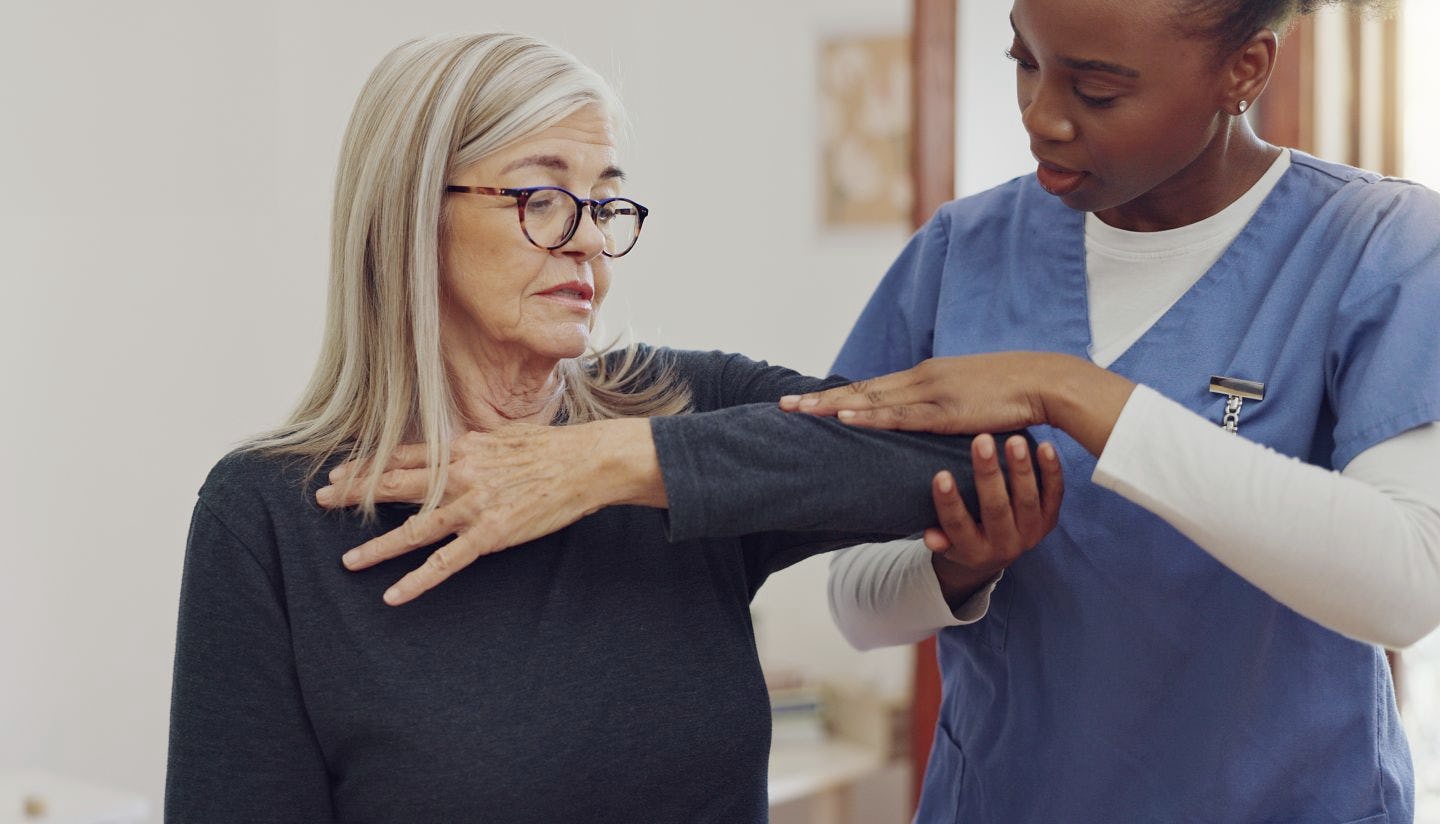Rotator cuff tears happen in younger people when they experience a trauma such as a fall. In middle-aged people and seniors, rotator cuff tears are usually the result of a gradual wearing out of the rotator cuff tendon(s). The signs and symptoms of rotator cuff tears are pain in the shoulder often radiating down to the middle of the arm especially when the arm is raised overhead, weakness, and in severe cases, a complete loss of the ability to lift the arm.
Diagnostic tests sometimes include an arthrogram (a radio-opaque dye is injected into the shoulder, and if it leaks out of the rotator cuff, it can be viewed on x-ray) or an ultrasound, but an M.R.I. of the rotator cuff is the most common test used for diagnosis.
Treatment in young and middle-aged patients is usually arthroscopic or open repair of the torn tendons. In older patients, activity modification, anti-inflammatory medication, physical therapy and cortisone injections are typical. Surgery is an option for patients with pain and dysfunction that does not respond to conservative treatment.

